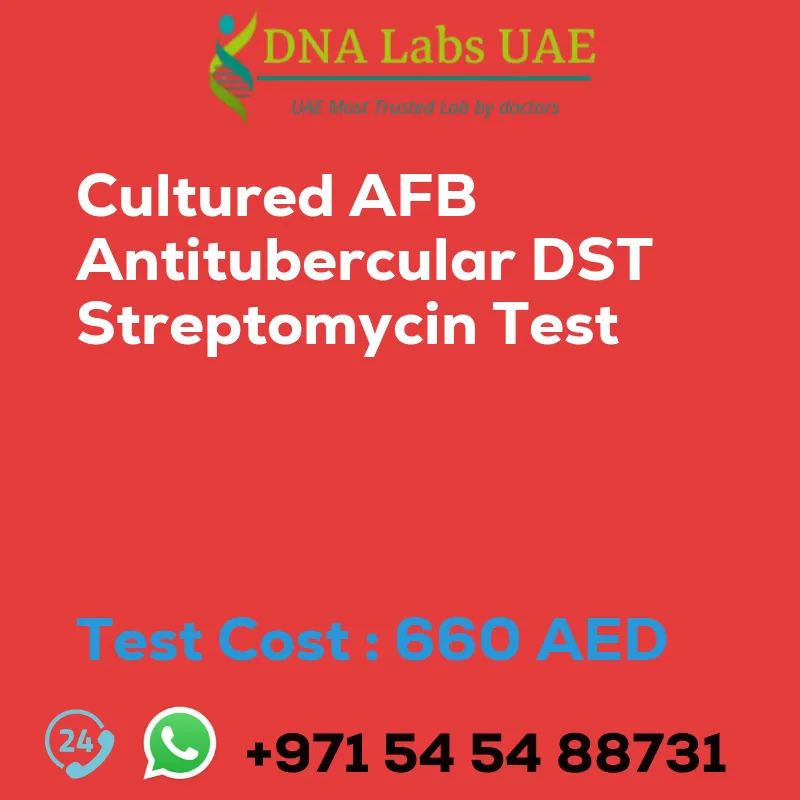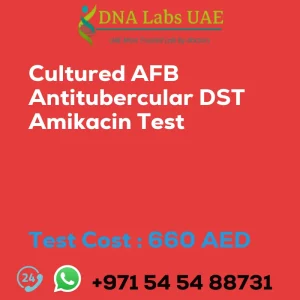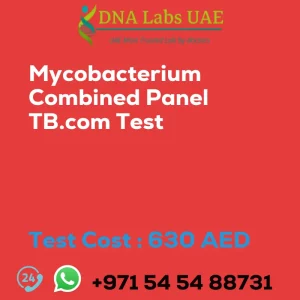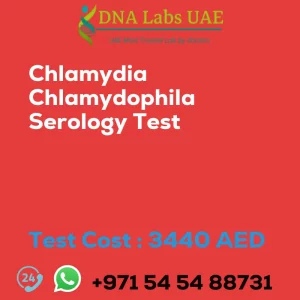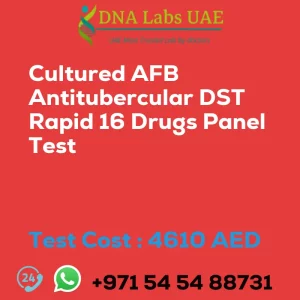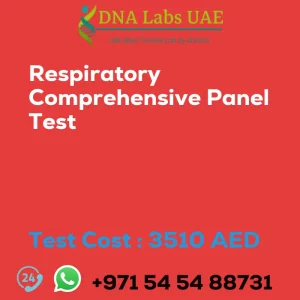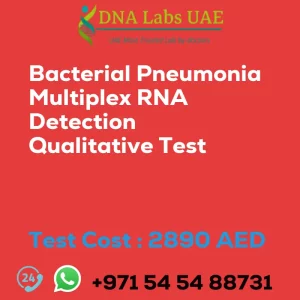CULTURED AFB ANTITUBERCULAR DST STREPTOMYCIN Test
Test Name: CULTURED AFB ANTITUBERCULAR DST STREPTOMYCIN Test
Components: Streptomycin
Price: 660.0 AED
Sample Condition: Submit pure growth of Mycobacterium tuberculosis complex on appropriate media in sterile screw capped container in a sealed plastic bag. Ship refrigerated or when used with other AFB culture or Mycobacteria identification tests, the pure growth obtained in the Laboratory from specimens already submitted will be processed for Antitubercular Sensitivity.
Report Delivery: Sample daily by 3.30 pm; Report 21 days
Method: Automated Fluorescent
Test Type: Tuberculosis
Doctor: Physician
Test Department:
Pre Test Information: No special preparation required
Test Details:
The Cultured AFB Antitubercular DST Streptomycin test is a diagnostic test used to determine the susceptibility of Mycobacterium tuberculosis (the bacteria that causes tuberculosis) to the antibiotic streptomycin. Streptomycin is one of the first-line drugs used in the treatment of tuberculosis. However, some strains of M. tuberculosis have developed resistance to streptomycin, making it ineffective in treating these infections.
The Cultured AFB Antitubercular DST Streptomycin test helps to identify if the bacteria is resistant or susceptible to streptomycin, which helps guide the appropriate treatment plan for the patient. The test involves growing a culture of the bacteria in the laboratory and exposing it to different concentrations of streptomycin. The growth of the bacteria is then observed to determine if it is inhibited by the antibiotic or if it continues to grow despite its presence.
This information is used to classify the bacteria as either susceptible, intermediate, or resistant to streptomycin. The results of the Cultured AFB Antitubercular DST Streptomycin test, along with other drug susceptibility tests, help clinicians choose the most effective drug combination for treating tuberculosis. This is important in preventing the development of further drug resistance and ensuring successful treatment outcomes for patients with tuberculosis.
| Test Name | CULTURED AFB ANTITUBERCULAR DST STREPTOMYCIN Test |
|---|---|
| Components | |
| Price | 660.0 AED |
| Sample Condition | Submit pure growth ofMycobacterium tuberculosis complexon appropriate media in sterile screw capped container in a sealed plastic bag. Ship refrigerated ORwhen used with other AFB culture or Mycobacteria identification tests, the pure growth obtained in the Laboratory from specimens already submittedwill be processed for Antitubercular Sensitivity. |
| Report Delivery | Sample Daily by 3.30 pm; Report 21 days |
| Method | Automated Fluorescent |
| Test type | Tuberculosis |
| Doctor | Physician |
| Test Department: | |
| Pre Test Information | No special preparation required |
| Test Details |
The Cultured AFB Antitubercular DST Streptomycin test is a diagnostic test used to determine the susceptibility of Mycobacterium tuberculosis (the bacteria that causes tuberculosis) to the antibiotic streptomycin. Streptomycin is one of the first-line drugs used in the treatment of tuberculosis. However, some strains of M. tuberculosis have developed resistance to streptomycin, making it ineffective in treating these infections. The Cultured AFB Antitubercular DST Streptomycin test helps to identify if the bacteria is resistant or susceptible to streptomycin, which helps guide the appropriate treatment plan for the patient. The test involves growing a culture of the bacteria in the laboratory and exposing it to different concentrations of streptomycin. The growth of the bacteria is then observed to determine if it is inhibited by the antibiotic or if it continues to grow despite its presence. This information is used to classify the bacteria as either susceptible, intermediate, or resistant to streptomycin. The results of the Cultured AFB Antitubercular DST Streptomycin test, along with other drug susceptibility tests, help clinicians choose the most effective drug combination for treating tuberculosis. This is important in preventing the development of further drug resistance and ensuring successful treatment outcomes for patients with tuberculosis. |

